
XCOM is a science fiction video game franchise featuring an elite international organization tasked with countering alien invasions of Earth. The series began with the strategy video game X-COM: UFO Defense created by Julian Gollop's Mythos Games and MicroProse in 1994. The original lineup by MicroProse included six published and at least two canceled games, as well as two novels. The X-COM series, in particular its original entry, achieved a sizable cult following and has influenced many other video games; including the creation of a number of clones, spiritual successors, and unofficial remakes.

Crusader: Adventure Out of Time, also known as Crusader: A Conspiracy in the Kingdom of Jerusalem is a 1997 video game, developed by Index+ and published by Europress. The game was published for Windows, Windows 3.x and Mac OS.

Monty Python's The Meaning of Life is an adventure game created by 7th Level in 1997 for Windows. The game is based on the 1983 film of the same name and was the third of three Monty Python games created by 7th Level. It was rated Mature by the ESRB in North America.
The Magic School Bus is a series of educational software video games developed by Music Pen and published by Microsoft via their Microsoft Home brand. The interactive adventures are part of the larger franchise and based with The Magic School Bus original series books and public television series.

Anastasia: Adventures with Pooka and Bartok is a puzzle video game based on the 1997 animated film Anastasia. Developed by Motion Works, published by Fox Interactive and distributed by 20th Century Fox Home Entertainment, the title was released on November 25, 1997. It was produced by David Wisehart, who also served as voiceover director. The game had an estimated budget of US$800,000.

Ark of Time is a 1997 adventure game developed by Italian studio Trecision and published in 1997 for MS-DOS by Koei. A PlayStation version was released in 1998.
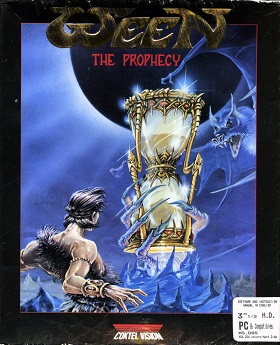
The Prophecy is a point-and-click adventure game in a fantasy setting, developed by Coktel Vision and MDO, released in Europe in 1992 for MS-DOS, Amiga, and Atari ST. It was published by Sierra On-Line in North America in 1993. A German retail version was released.

Murder In The Abbey is an adventure video game, developed by the Spanish studio Alcachofa Soft and released in 2008. The game is inspired by the 1987 title La Abadía del Crimen.
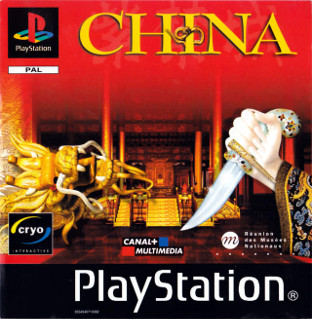
China: The Forbidden City is a 1998 adventure video game developed by Cryo Interactive Entertainment and jointly-published by Cryo, Canal+ Multimedia and the Réunion des Musées Nationaux.

Byzantine: The Betrayal is a video game, released September 30, 1997 for Microsoft Windows.

The Legend of the Prophet and the Assassin is an adventure game by Arxel Tribe. It is the sequel to Pilgrim: Faith as a Weapon. It was released in October 2000 for Windows. The game is inspired by the work of Brazilian novelist Paulo Coelho. A sequel, The Secrets of Alamût was released in March 2001.
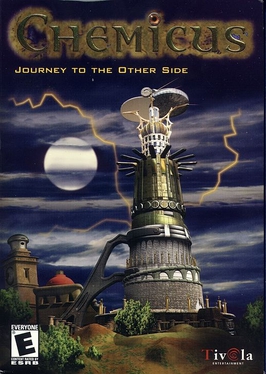
Chemicus: Journey to the Other Side is a 2001 educational adventure video game by Heureka-Klett as part of Tivola's "Quest for Knowledge" series. A sequel named Chemicus II: Die versunkene Stadt was released in 2002. The game was originally released in Germany.

The Arrival is a 1997 adventure game developed by Enteraktion and published by Live Interactive. It was released on Mac and Windows. It's an adaption of the film of the same name.

Santa Fe Mysteries: The Elk Moon Murder is a video game, the first in the Santa Fe Mysteries series, followed by Santa Fe Mysteries: Sacred Ground. In The Elk Moon Murder, a famous Native American artist named Anna Elk Moon is murdered in the American Southwest.

Tunguska: Legend of Faith is an action-adventure video game by German-based studio Exortus GmbH, released on PC and later PlayStation. It received largely negative reviews from critics.

Rocky Interactive Horror Show is a point-and-click adventure game developed by On-Line Entertainment in conjunction with Transylvania Interactive and published by On-Line exclusively for Microsoft Windows. A spiritual successor to CRL Group's 1985 video game adaptation, it is the second video game to be released and based upon Richard O'Brien's musical of the same name, who is also a member of the cast. Following the plot from 20th Century Fox's 1975 musical horror comedy film of the same name, the player assume the role of either Brad Majors or Janet Weiss in order to rescue one of the two playable characters, who has been transformed into stone by Dr. Frank-N-Furter's Medusa Transducer, within a set time limit before the mansion becomes a spaceship and takes off to the planet Transsexual Transylvania.
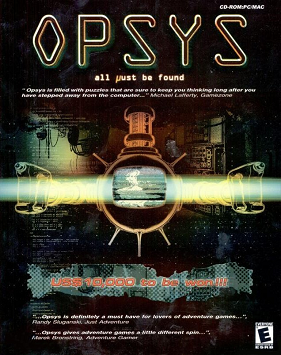
Opsys is an educational adventure video game by Polish studio Lemon Interactive and published by [hyper]media limited in 2000 on Macintosh and Windows.

Secrets of the Luxor is a 1996 adventure video game developed by American studio Mojave and published by Ubi Soft for Macintosh, Windows, and Windows 3.x.
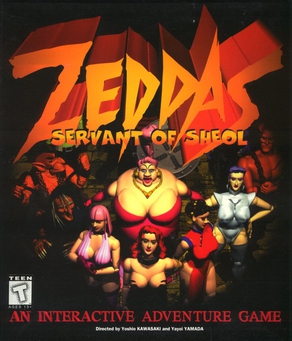
Zeddas: Servant of Sheol, also known as Horror Tour, is a horror adventure video game developed by Japanese studio Caravan Interactive, and published by Synergy Interactive in 1996 for Macintosh, SEGA Saturn, and Windows 3.


















